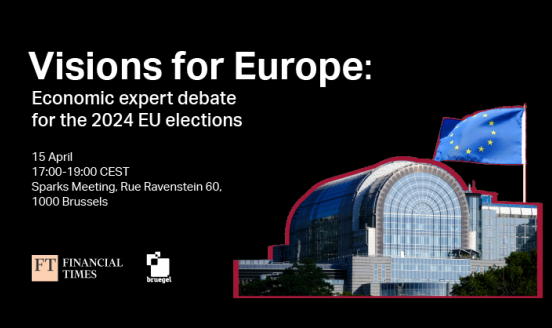Fiscal aspects of the Energy Transition
Relative prices of different energy carriers are affected by a number of fiscal instruments. At this event, we will hold a discussion on, how fiscal i

Speakers
Georg Zachmann
Senior fellow
Jos Delbeke
Professor, School of Transnational Governance, EUI
Former Director General, European Commission, DG Clima
Karen Pittel
Director of the ifo Center for Energy, Climate and Exhaustible Resources, ifo Institute,
Ian Parry
Principal Environmental Fiscal Policy Expert, Fiscal Affairs Department, International Monetary Fund
Gregor Pett
Director, Market Operations, Uniper,
VIDEO & AUDIO RECORDINGS
SUMMARY
Increasing the cost of carbon and internalizing all environmental costs should be placed at the heart of the European energy transition. Carbon taxes and the EU Emissions Trading System (ETS) are key policy instruments that can contribute to the goals of increased public revenues and decarbonization. Striking a balance between these goals is important. There is furthermore a need for a coordinated approach across EU Member States regarding energy and climate policies. One Member State implementing a carbon tax, for instance, may not contribute much to reduced emissions in the EU as a whole.
Policies taxing electricity, as opposed to its carbon-based inputs, risk distorting electricity prices and creating an inefficiently low level of deployment of electricity in other sectors. This may slow down electrification efforts in the transport and heat sectors. Moreover, energy taxes in general may have a limited impact on market participants’ behavior. Policy makers should therefore be pragmatic and seek the most efficient fiscal instruments in their decarbonization efforts.
The benefits of a multispeed approach to decarbonize Europe were also discussed. Less strict carbon price floors may increase political support for this instrument. Allowing less developed countries to temporarily implement low carbon price floor levels may therefore initially increase uptake of this instrument. The levels can subsequently be increased. However, such a multispeed approach can undermine investment in renewable energy and increase the difficulty of meeting the EU wide climate targets.
Though the EU ETS will lead to a reduction in EU emissions with certainty, the current low price of emission unit allowances is slowing down investment in renewable energy technology. The Market Stability Reserve (MSR) is a key initiative which is expected to increase the price of allowances by reducing the supply of allowances. In addition, the modernization fund and innovation fund can be expected to promote innovation in renewable energy technology.
Reinforcing the EU ETS with a carbon price floor may be an effective way of reducing emissions. Currently, the EU ETS is incompatible with national mechanisms, implying that a unilateral carbon price floor may not have a large effect on the overall carbon price in the EU ETS. Two key challenges for European policy makers were furthermore discussed. Firstly, it may be difficult to achieve unanimity across EU Member States on energy tax rates. Secondly, striking a balance between environmental policies and economic competitiveness is important.
Event Notes by Gustav Fredriksson







